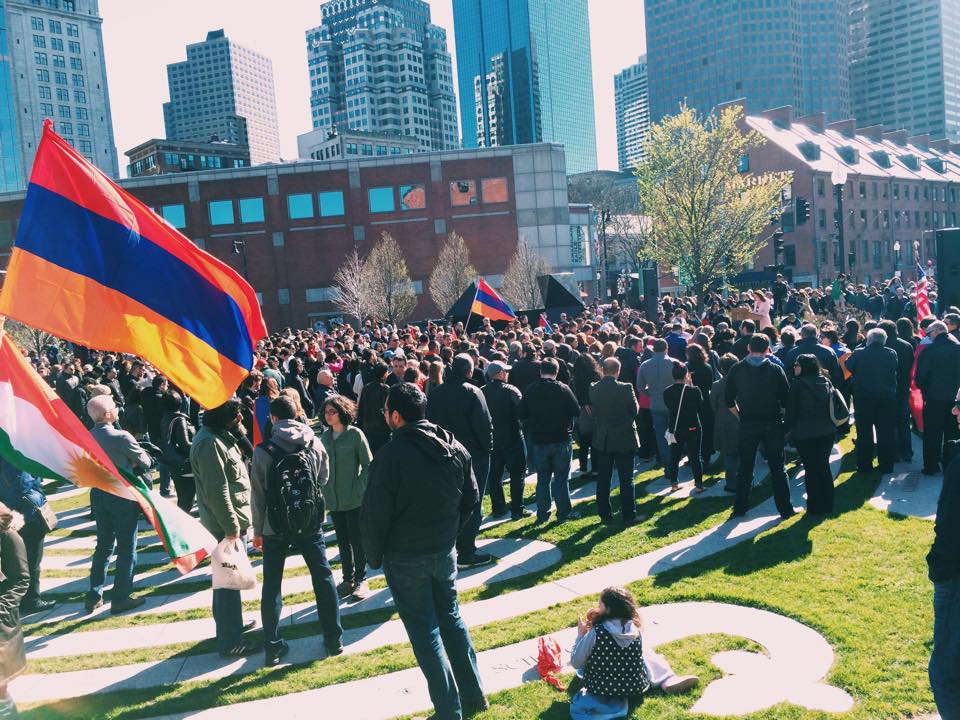
In recent years, it has become somewhat fashionable to pooh-pooh, demean, argue against or perceive conspiracies in efforts to obtain recognition of the Armenian Genocide by the United States.
I, too, may have contributed to this mindset to some extent by advocating and promoting greater focus on the need to seek reparations and return of our lands.
People have different reasons for contending that we are “wasting” our energy on recognition efforts. Some argue that passage of resolutions in 1975 and 1984 by the House of Representatives, President Ronald Reagan’s 1981 proclamation and the 1951 Genocide reference by the US government in a filing with the World Court constitute recognition. Others want more attention and effort directed at supporting the two Armenian republics. Fringe folks concoct and assert the existence of improbable conspiracies wherein our advocacy groups “abuse” the Genocide to “make” money, using this ludicrous argument to further their own destructive agenda or vendetta. A few are simply “tired of” all the effort we have put into achieving recognition.
we do not have explicit, unambiguous recognition by the US government.
But at a recent panel discussion held in UCLA’s law school, one of the speakers, Armen Hovannisian, an attorney active in the Armenian Bar Association and ARF made a very illuminating point. When lawsuits involving potential reparations for Genocide era losses have been brought by Armenians to the US courts, in all but a few, early, cases, they have lost. The underlying cause of this is the very fact that we do not have explicit, unambiguous recognition by the US government.
And, even if the above examples might have been considered that kind of recognition, they have been eclipsed by the fact that subsequent congresses and presidents have not taken a position when presented with the opportunity, thus creating doubt. The courts are latching on to this and avoiding the issue.
The way the courts are doing this is through the use of “preemption” – a legal concept in the US Constitution. Preemption says that foreign policy is the domain of the federal government. Therefore, if the federal government has not said there was an Armenian Genocide, then the courts are not in a position to act as if there was one. That also means that the states may not act as if there was one. That’s why the California law allowing descendants of those who had bought life insurance from various western companies to sue for the payouts was found unconstitutional.
Ergo, if we want to even begin to receive restitution through the courts, the Genocide recognition must remain on our agenda until it is formally received. This does not mean that other issues of concern and importance should not be pursued, especially reparations and lands. Much work needs to be done to prepare the hearts and minds of not only non-Armenian supporters of our issues, but even among ourselves. This does not mean that we should not work on the critically important issues confronting the two Armenian republics, or our Diasporan communities’ needs, or even the massive life-difficulties faced by Armenians still living under Turkish oppression.
It simply means the US Genocide recognition is more timely and necessary than ever; that it is not a passé issue; that it must be a significant part of any agenda of items pursued by our lobbying groups.
I am now profoundly convinced of the importance of securing unambiguous, explicit recognition by the US government, both executive and legislative branches.
I ask you to consider this matter seriously and at great length. I ask you to unreservedly join hands to achieve this long-delayed goal.


Garen, I am glad that you raised this issue on a national level and I command Armenian Weekly to have given you the formu to do so. I also have previously raised the same on my blog and in my public debates with Harut Sassounian.
The present ANCA leadership has failed. Instead of conveying to the people the obvious that the “unambiguous, explicit recognition by the US government, both executive and legislative branches” has not come about, they have and continue to resort to misleading verbiage.
As a layman in such matters, I believe, the U.S. recognition of the Armenian Genoicde will come about only and when the U.S. Congress resolves that the 1915 happening, our “Medz Yeghern” constituted genocide. Short of that the likes of Ambassador John Marshall Evans will pay a hefty personal price or act very much like Samantha Powers did, keep their silence at best.
I think it’s unfair to blame ANCA for the lack of decency and courage of a US President in fully recognizing the AG.
I applaud their relentless efforts as well as other organizations
and especially the AYF, the AW and journalists like Garen.
As for Amb. Evans, (if he would consider the position), I would like to see an effort to reinstate him as US Amb. to Armenia as
he is a man of honesty and integrity and I believe he (and his wife) truly love the country.
The only thing delaying success for those groups and individuals
is the lack of principles and courage of the resident of the Whitehouse.
The reasons for failure are painfully obvious.
Apathy, lack of unity, no strong support.
Very disheartening.
Vart
The US has acknowledged the Armenian Genocide in many formal ways already, including a 1951 World Court filing:
http://asbarez.com/57505/us-recognized-armenian-genocide-in-1951-world-court-document-reveals/
Pres. Reagan issued a formal proclamation on the “genocide” too.
What has not been the case is a formal, ongoing stance of acknowledgement and action by the US State Dept.
Can we please get our facts straight?